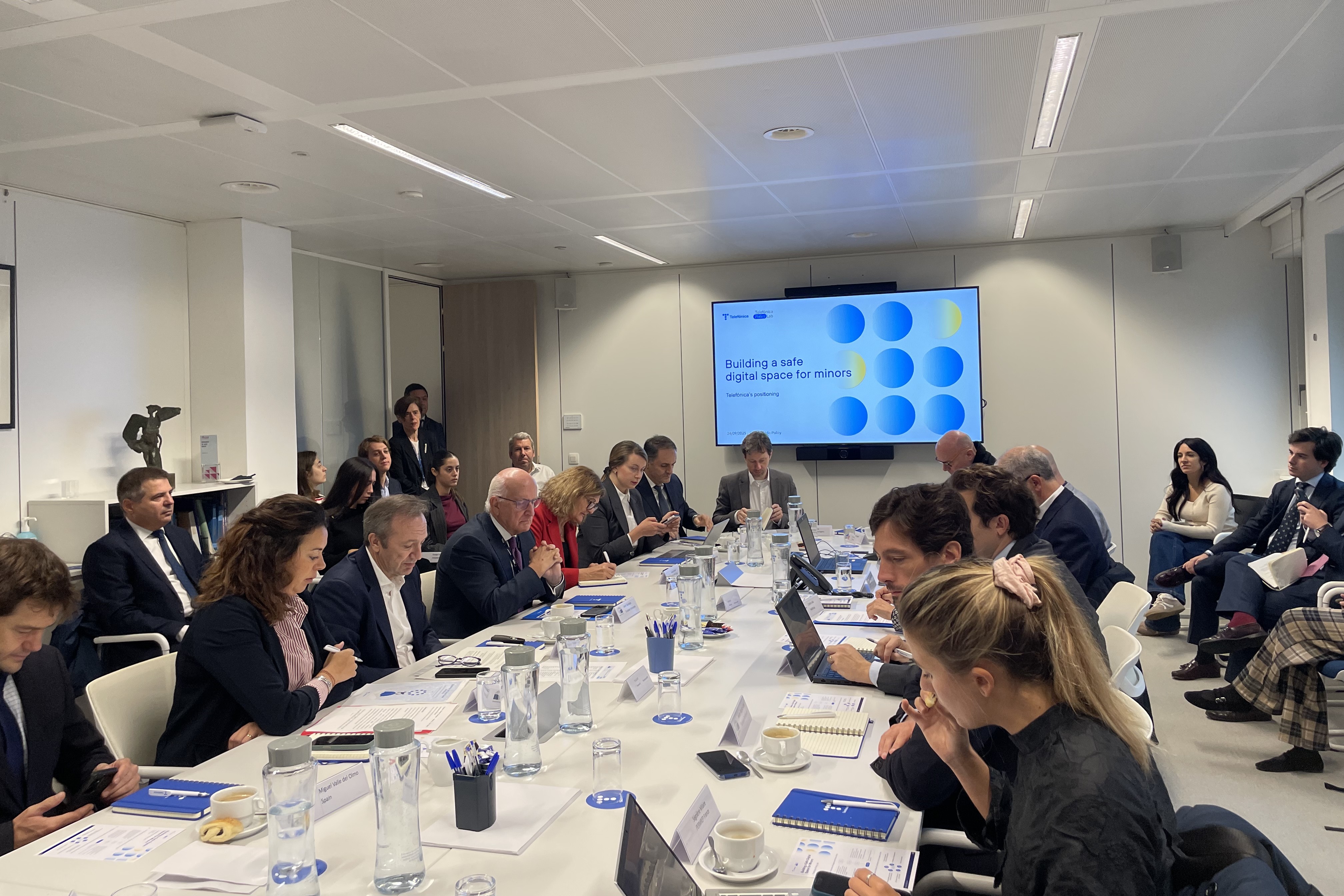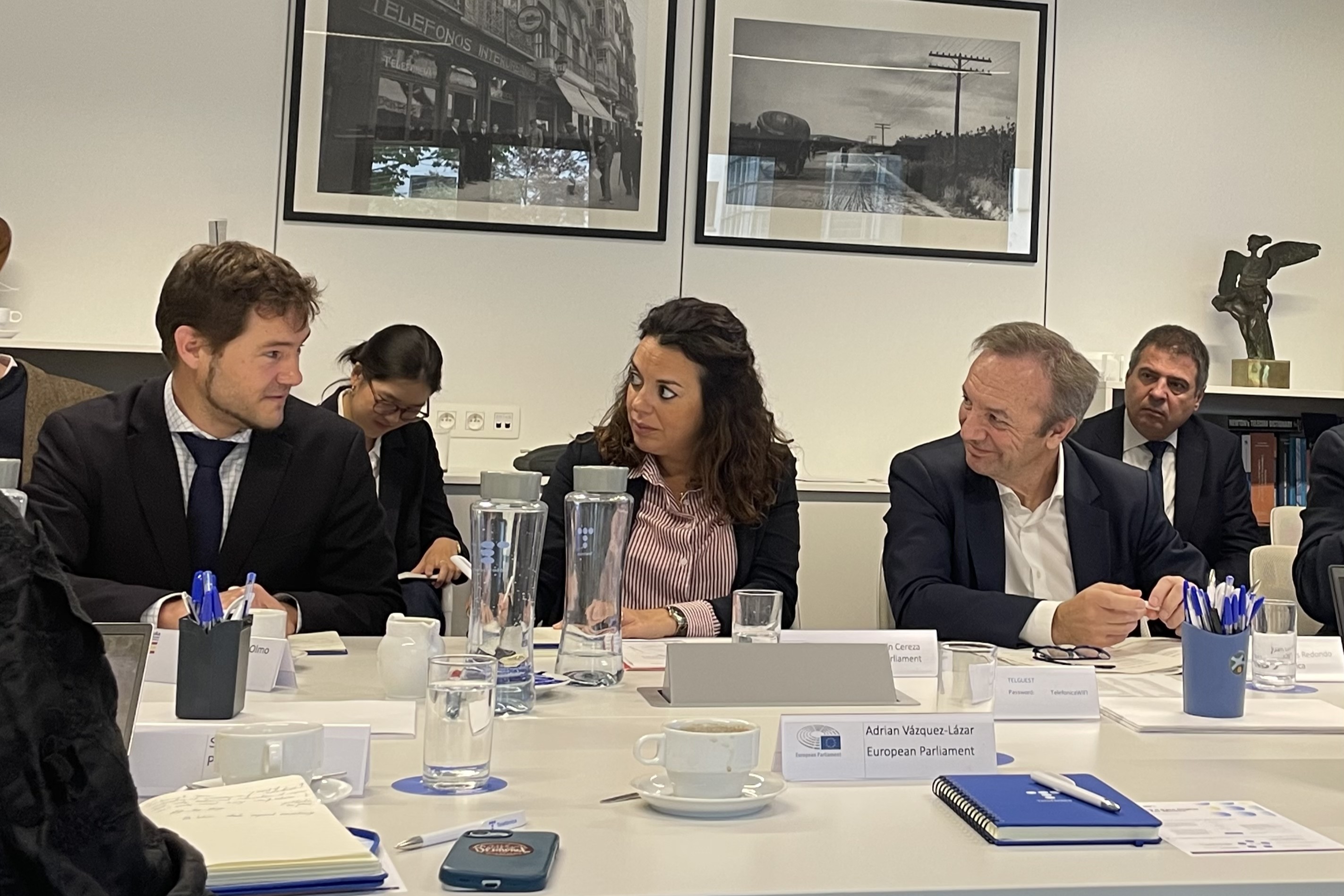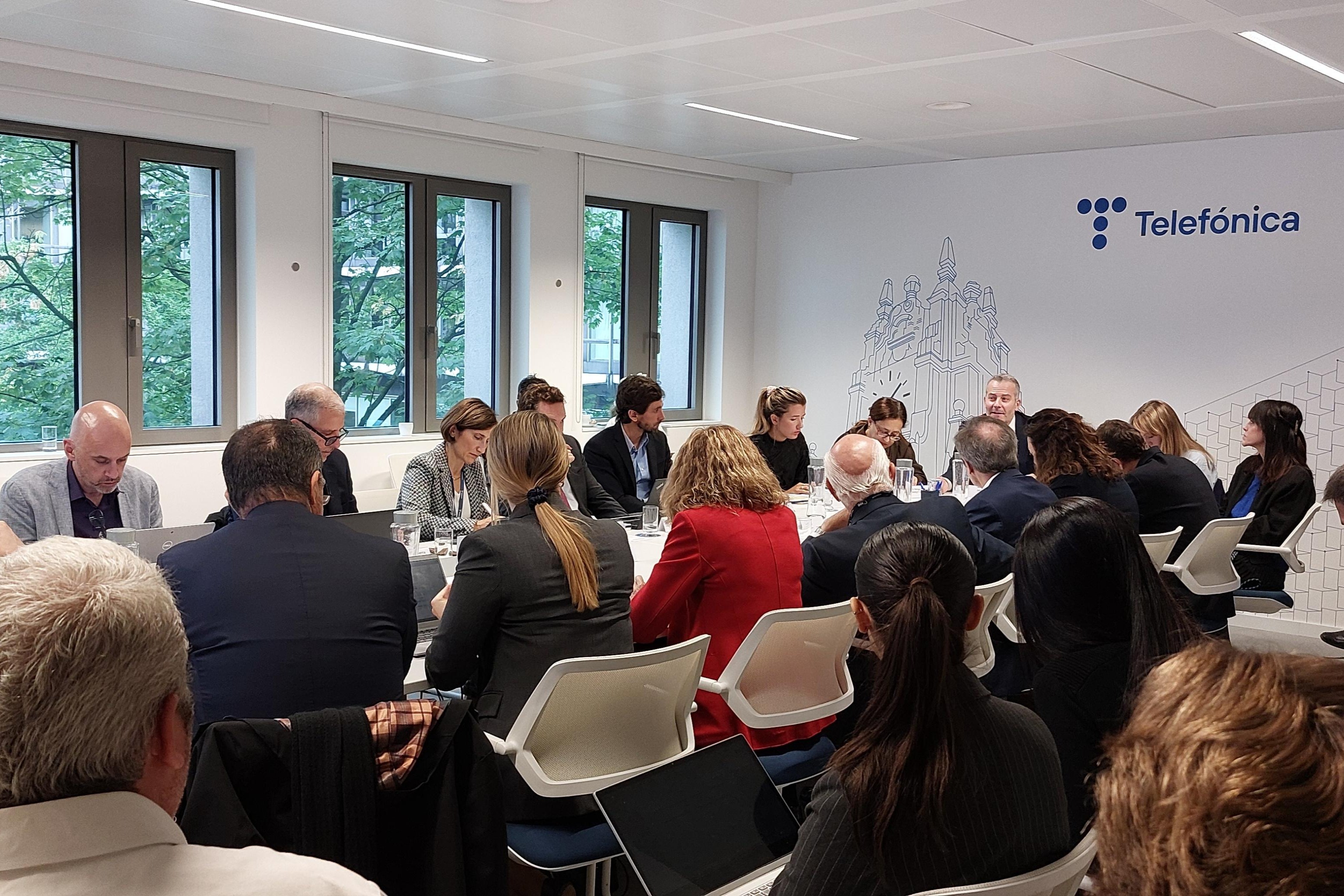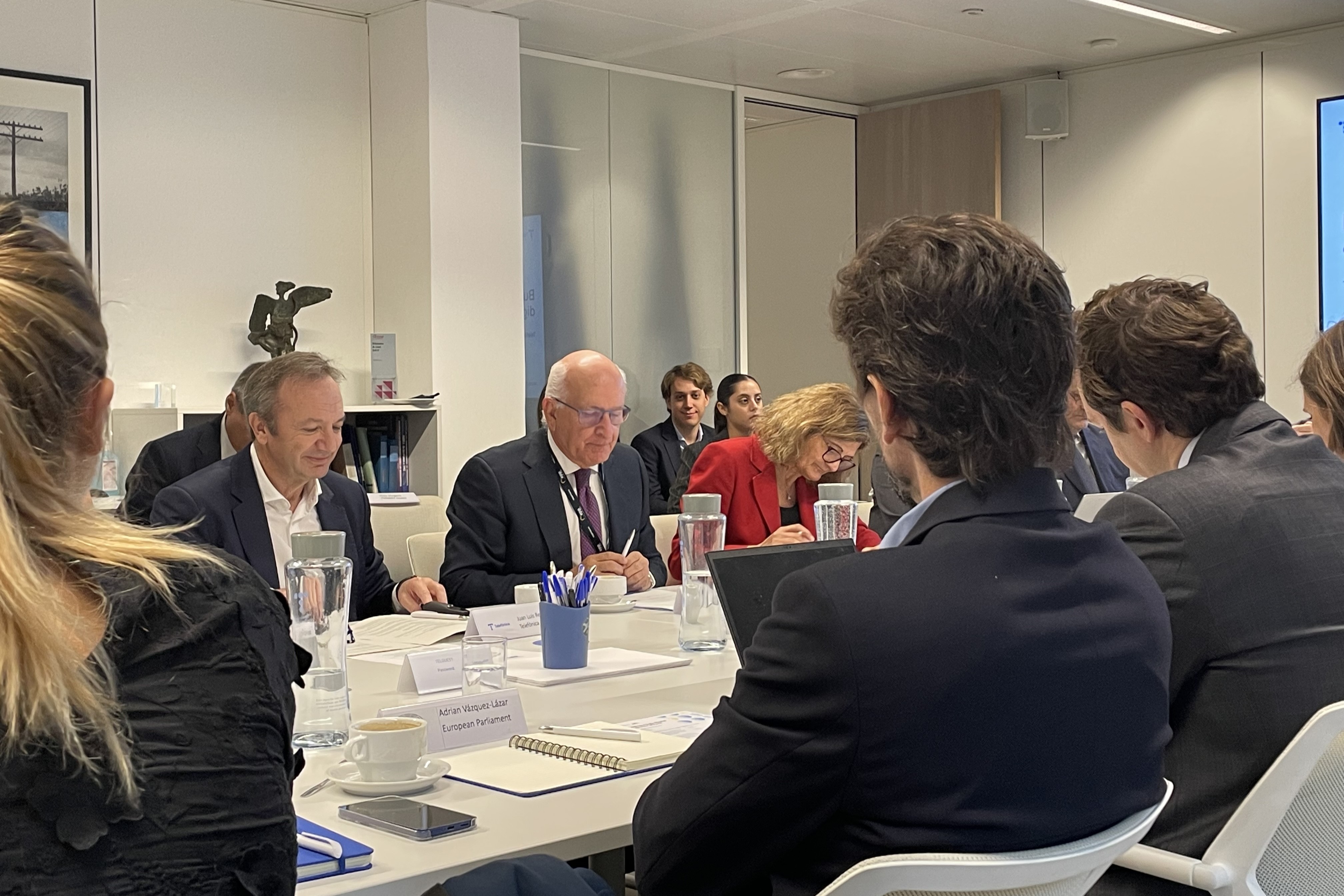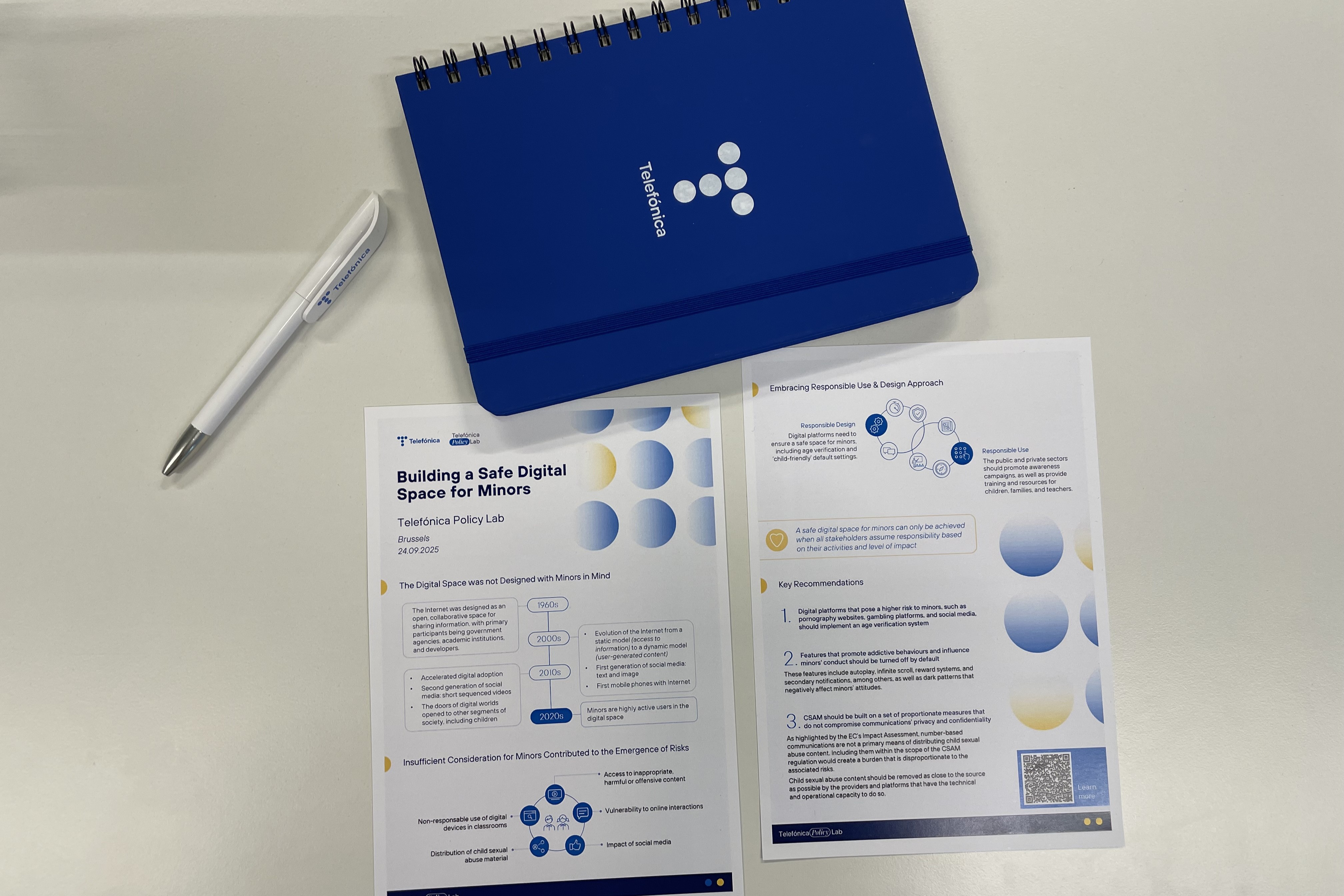On 24 September, Telefónica Policy Lab hosted the roundtable “Building a Safe Digital Environment for Minors” at its Brussels office. The event welcomed participants from the European Commission, Parliament, and Council, as well as from the telecoms sector and civil society.
The session opened with remarks from prominent Members of the European Parliament involved in the protection of minors’ initiatives: Javier Zarzalejos, rapporteur for the Regulation to combat child sexual abuse material (CSAM); Laura Ballarín and Pablo Arias, both members of the Internal Market and Consumer Protection Committee (IMCO); and Adrián Vázquez, member of the Legal Affairs Committee (JURI). Andrea Tognoni, responsible for the enforcement of the Digital Services Act at the European Commission, also delivered opening remarks.
Juan Luis Redondo, Director of Digital Public Policy at Telefónica, then presented the company’s position paper on promoting a safer online environment for children and adolescents. He outlined Telefónica’s shift from advocating for “responsible use of digital devices” to promoting the “responsible use and design of digital services and devices,” a vision reflected in the company’s decalogue of principles.
In addition, Redondo also stressed the importance of joint action among all stakeholders to prevent and mitigate online risks for minors, highlighting the need for responsibility to be shared according to each actor’s role and impact within the digital ecosystem.
The event continued with an open discussion among participants, who responded to the opening interventions and shared their own initiatives to foster a safer digital space for young people. A key takeaway was the growing recognition across Member States that online protection of minors is now a priority issue requiring urgent attention. However, several speakers raised concerns about the fragmentation of efforts across Europe, as national initiatives risk overlooking broader, long-term challenges.
In that regard, participants called for a holistic and harmonised European approach. The idea of a common “European age of digital majority,” with 15 as the most widely supported age, was discussed as a step towards greater cohesion. The importance of cooperation was also strongly emphasised, highlighting the need for collaboration across various levels: between the public and private sectors, across disciplines -such as education, health, and psychology-, among national ministries, and between Member States and EU institutions.
Finally, attention was drawn to the legislative framework at the European level concerning the digital protection of minors. On one hand, there were differing views between those who believed that new regulation is needed to address the gaps identified by the Digital Services Act (DSA) Fitness Check, and those who argued that the solution lies in better implementation of the DSA. On the other hand, the lack of consensus on the adoption of the Regulation to combat Child Sexual Abuse Material (CSAM) was highlighted; a piece of legislation that has stood out for provoking mixed and shifting opinions among Member States.
Overall, the Brussels Telefónica Policy Lab not only brought together key voices from across sectors to address the many dimensions of protection of minors, but also reaffirmed its role as a platform for dialogue and joint action to build a safer digital environment for children and adolescents.

